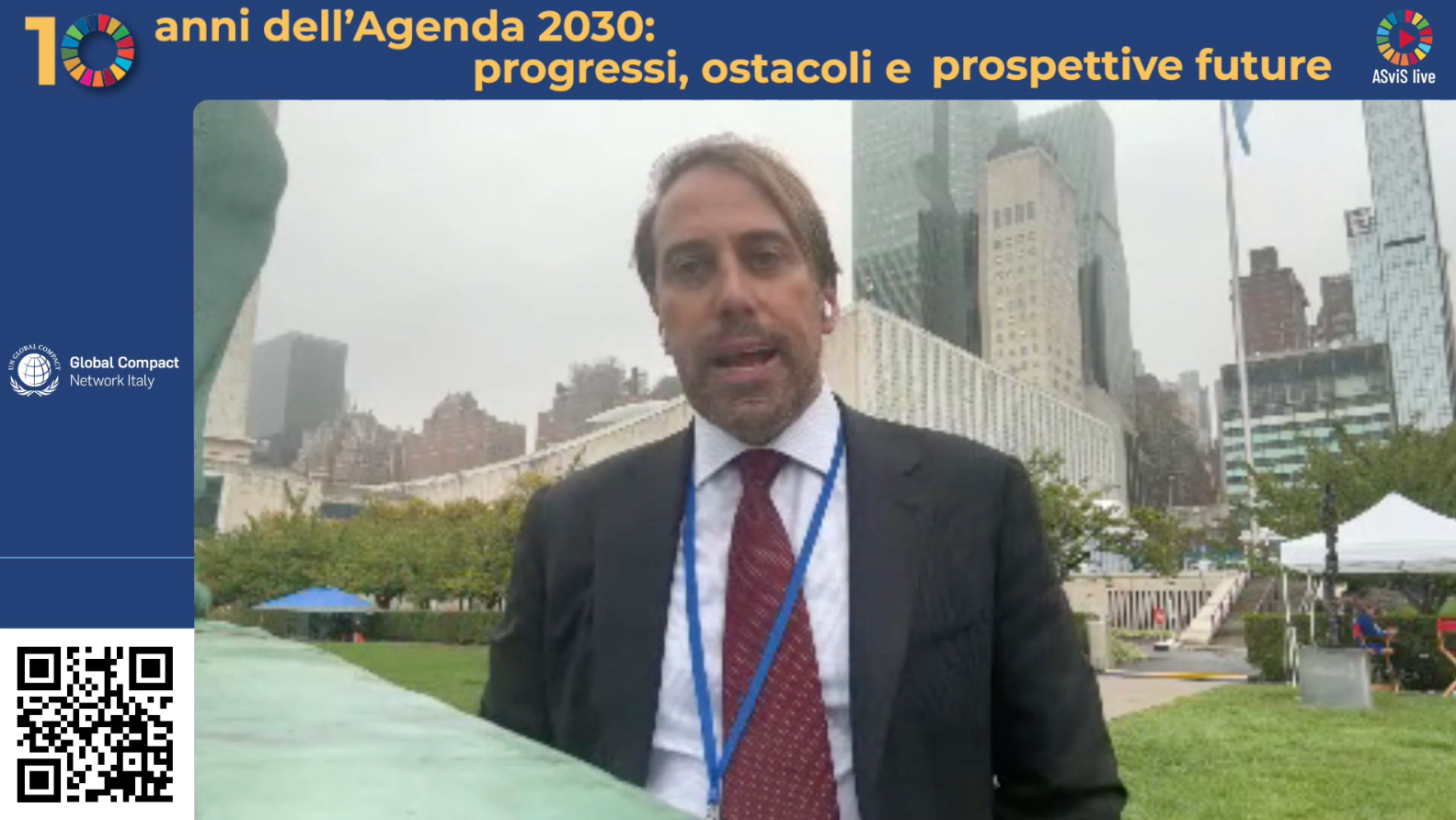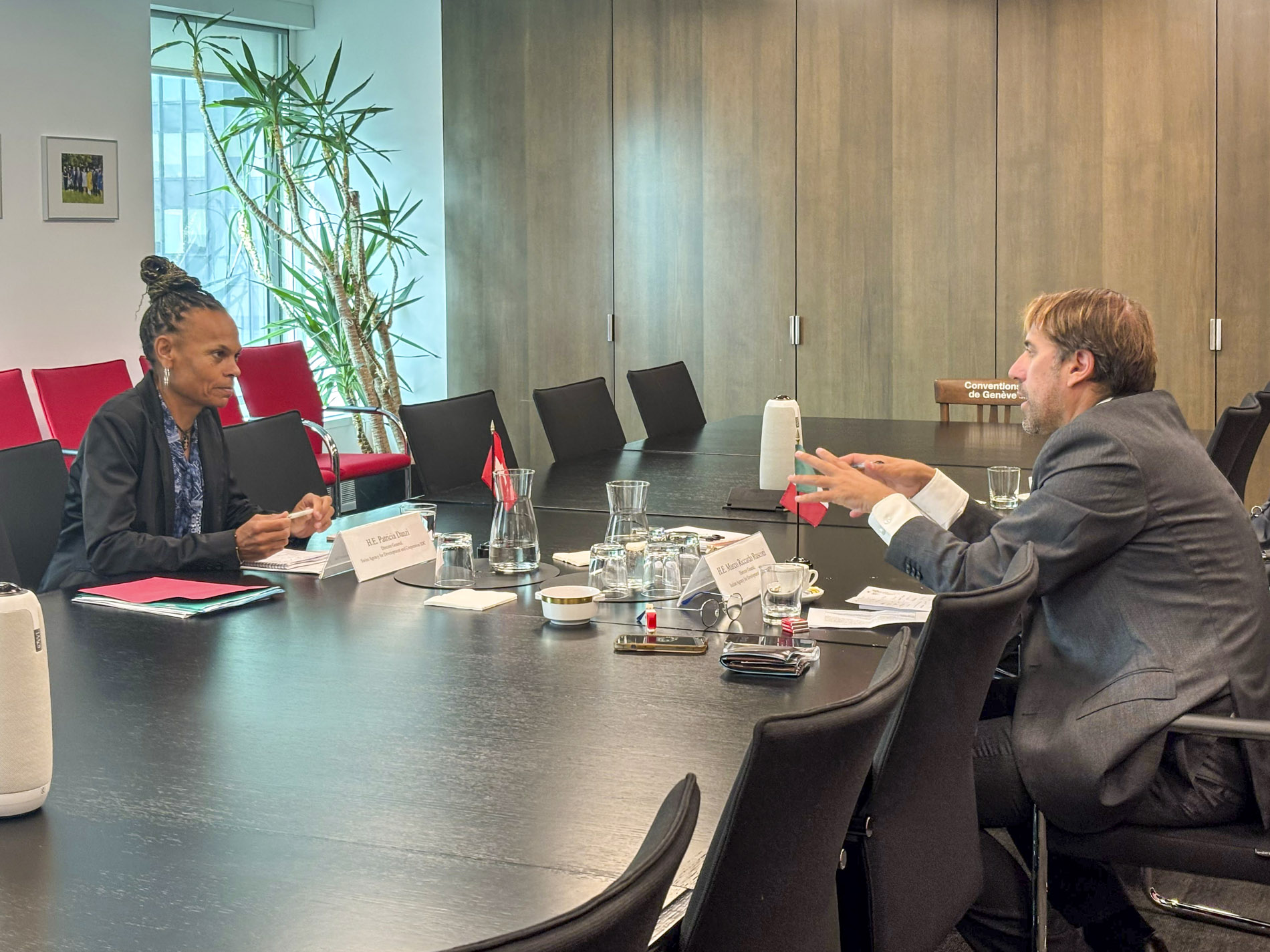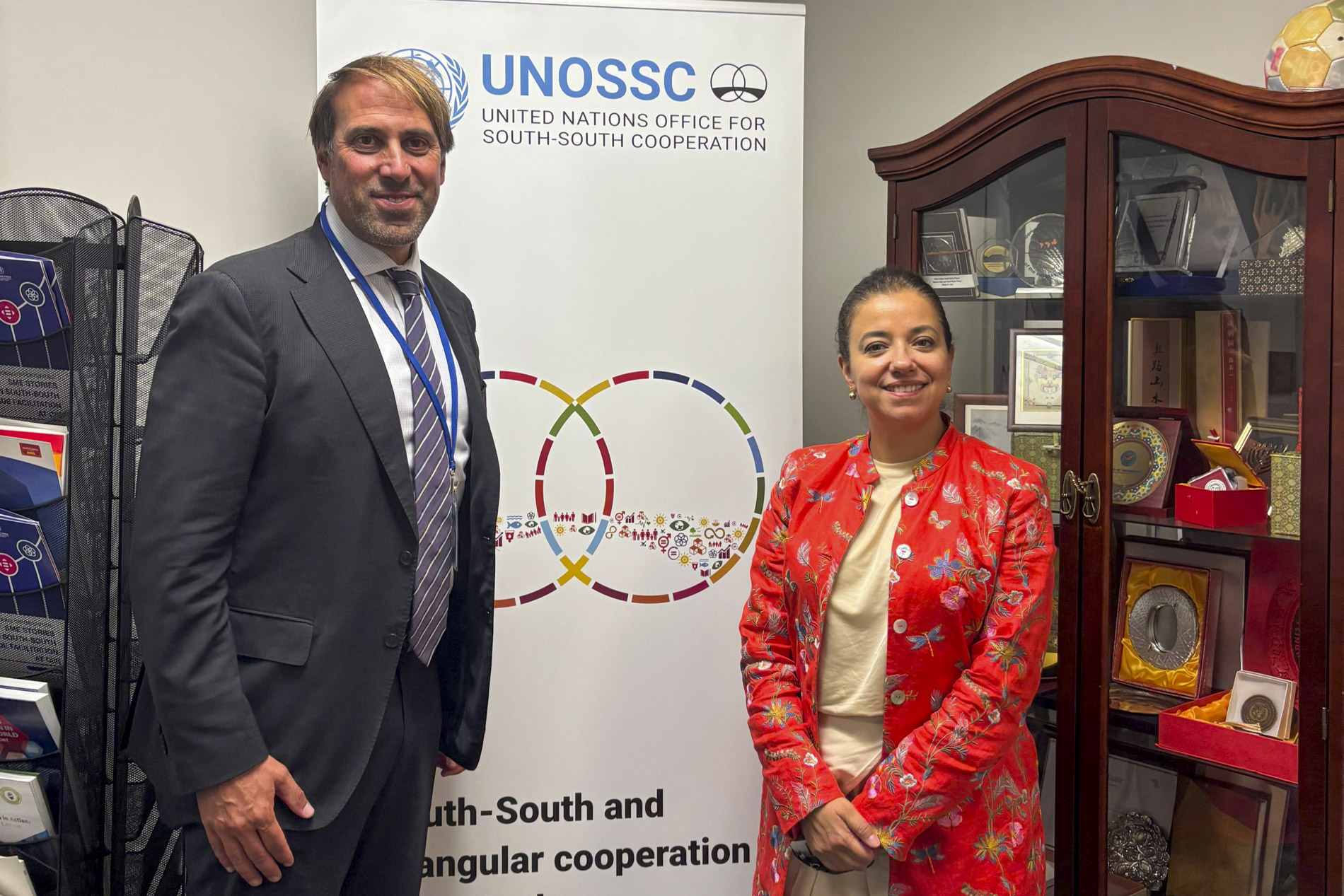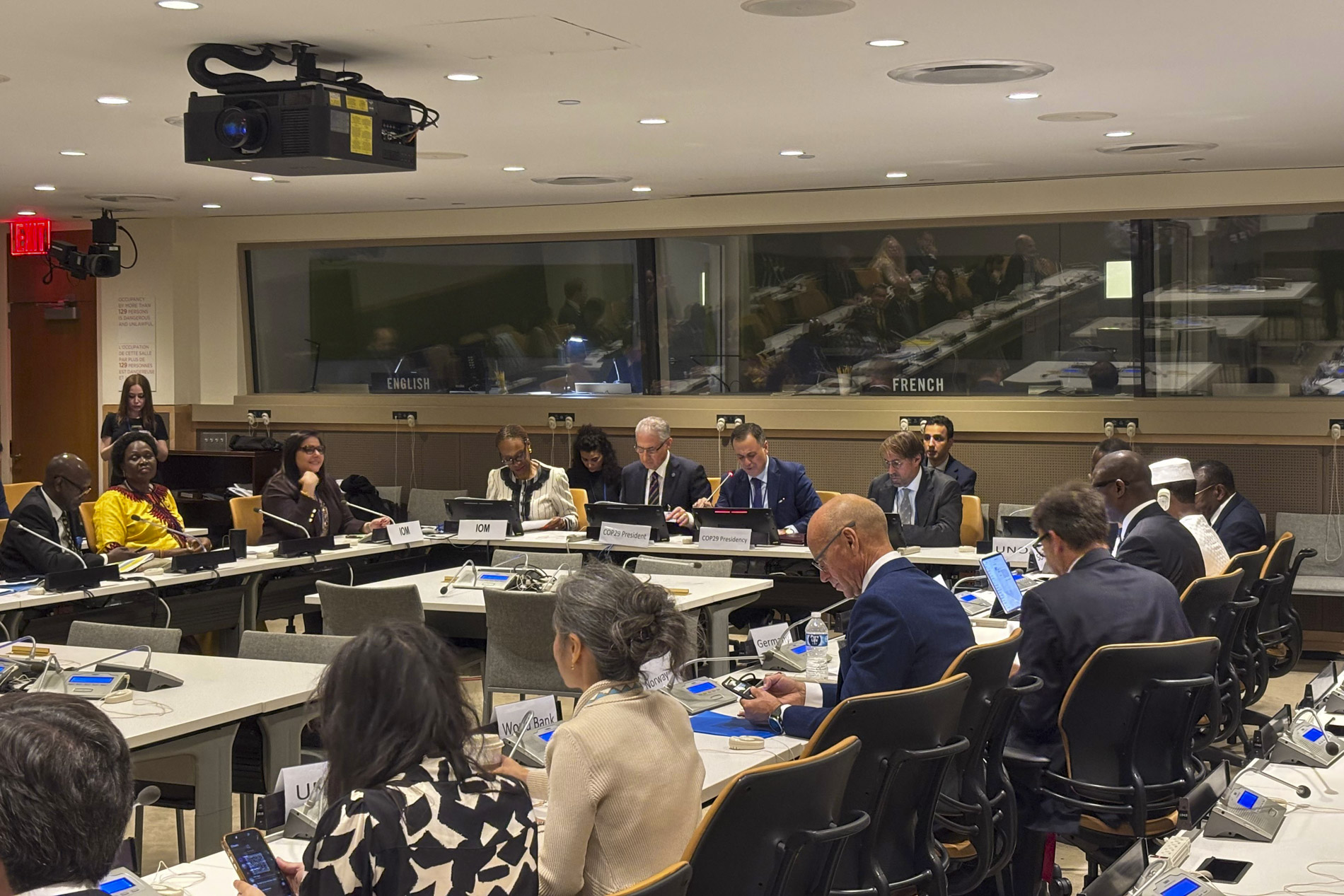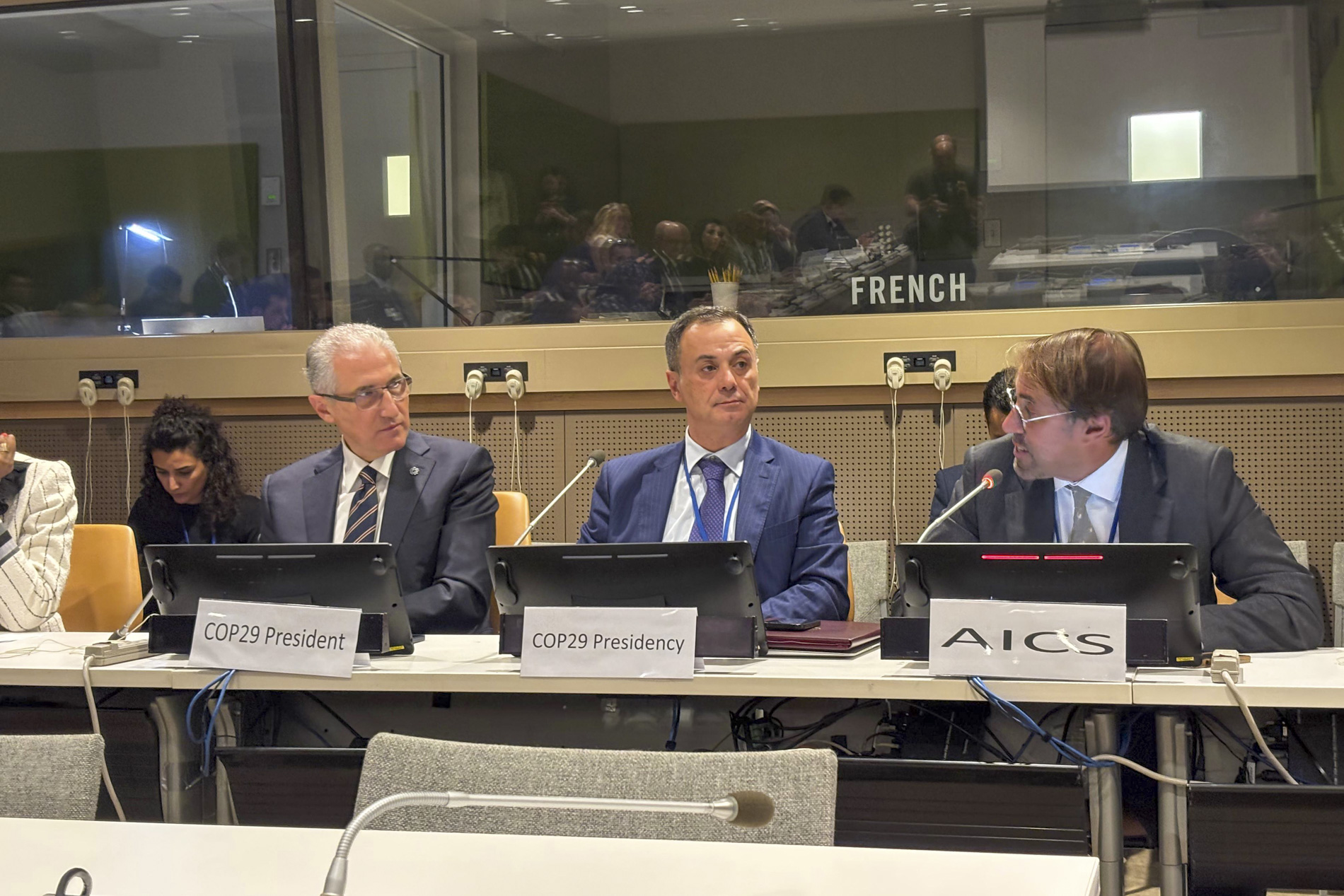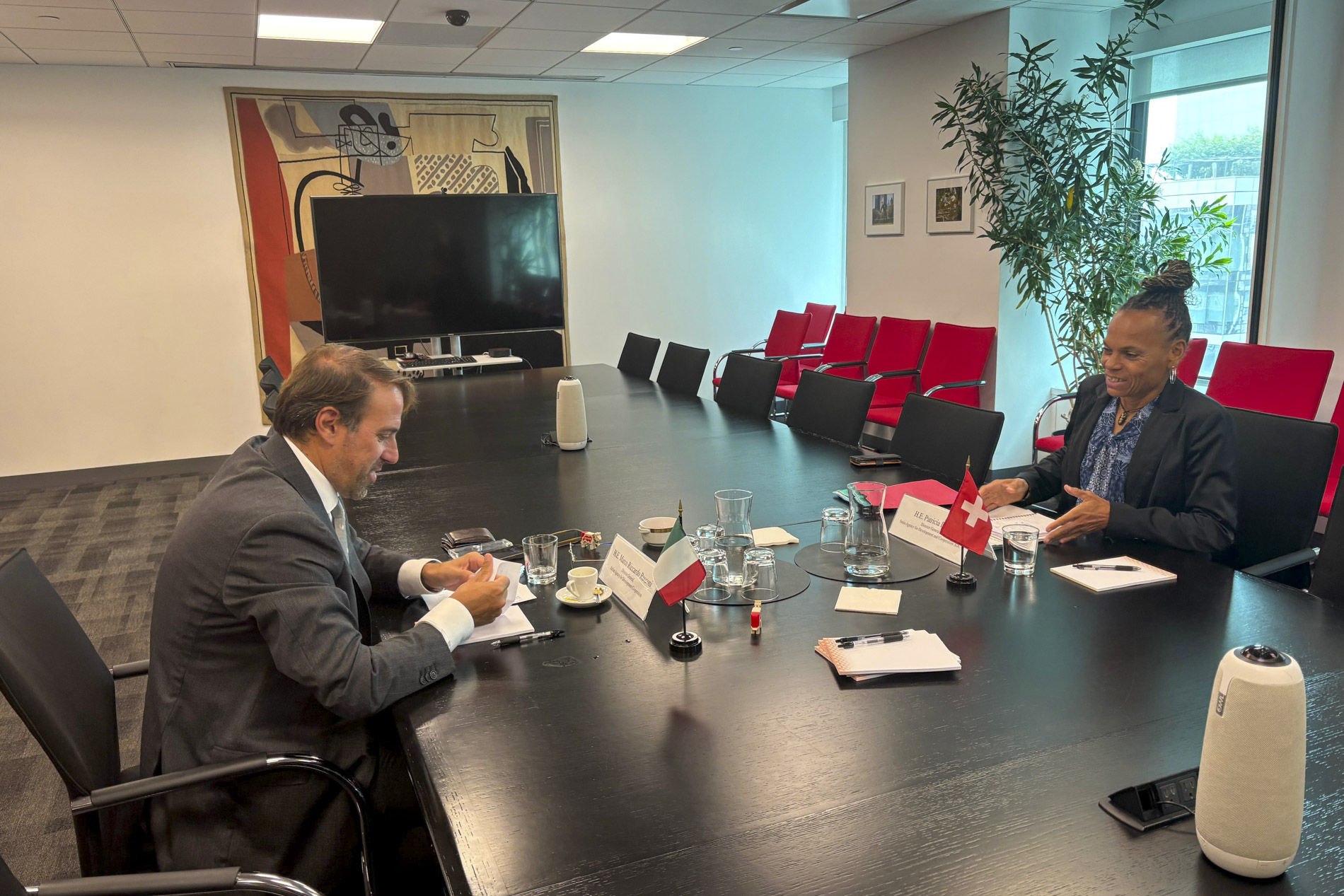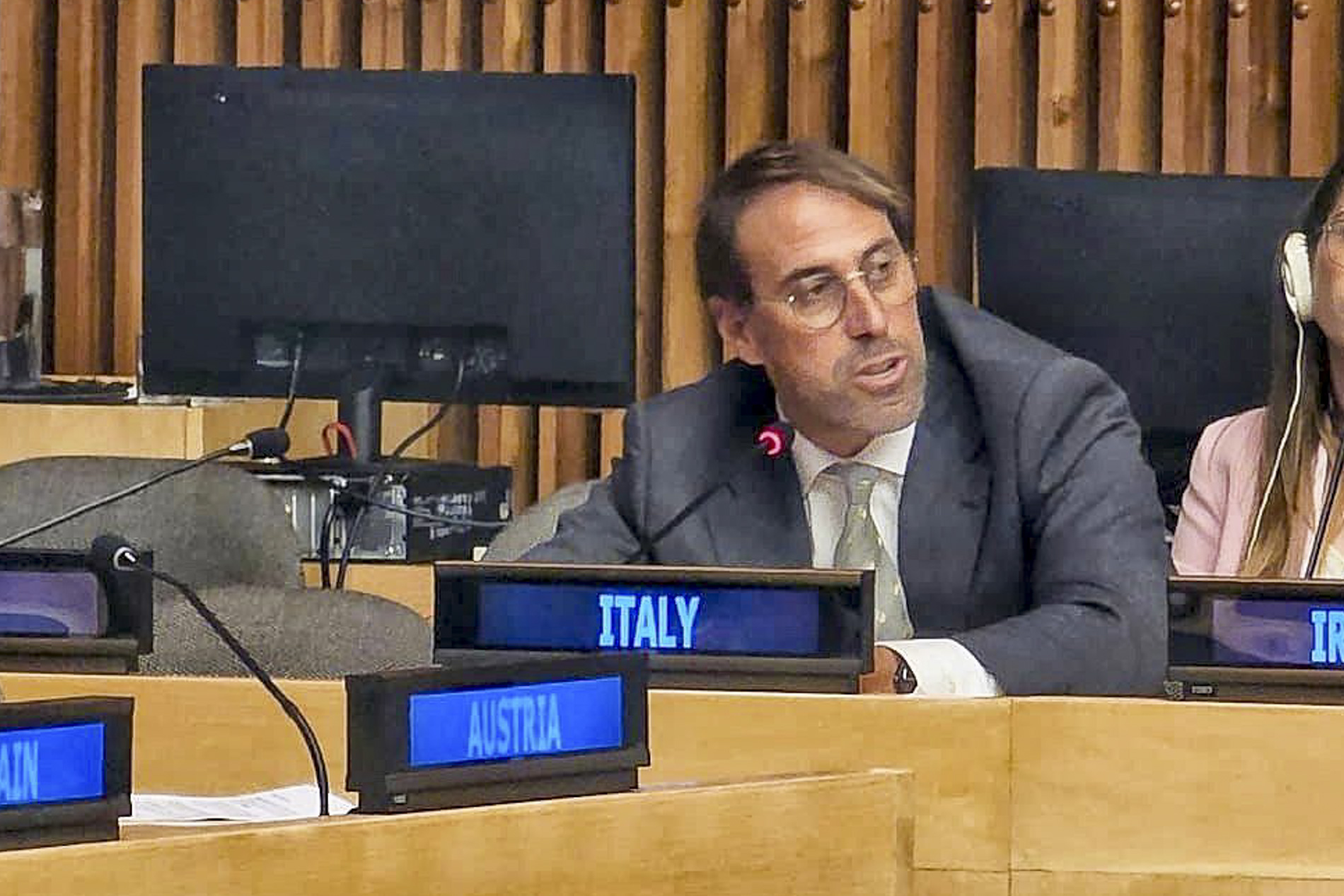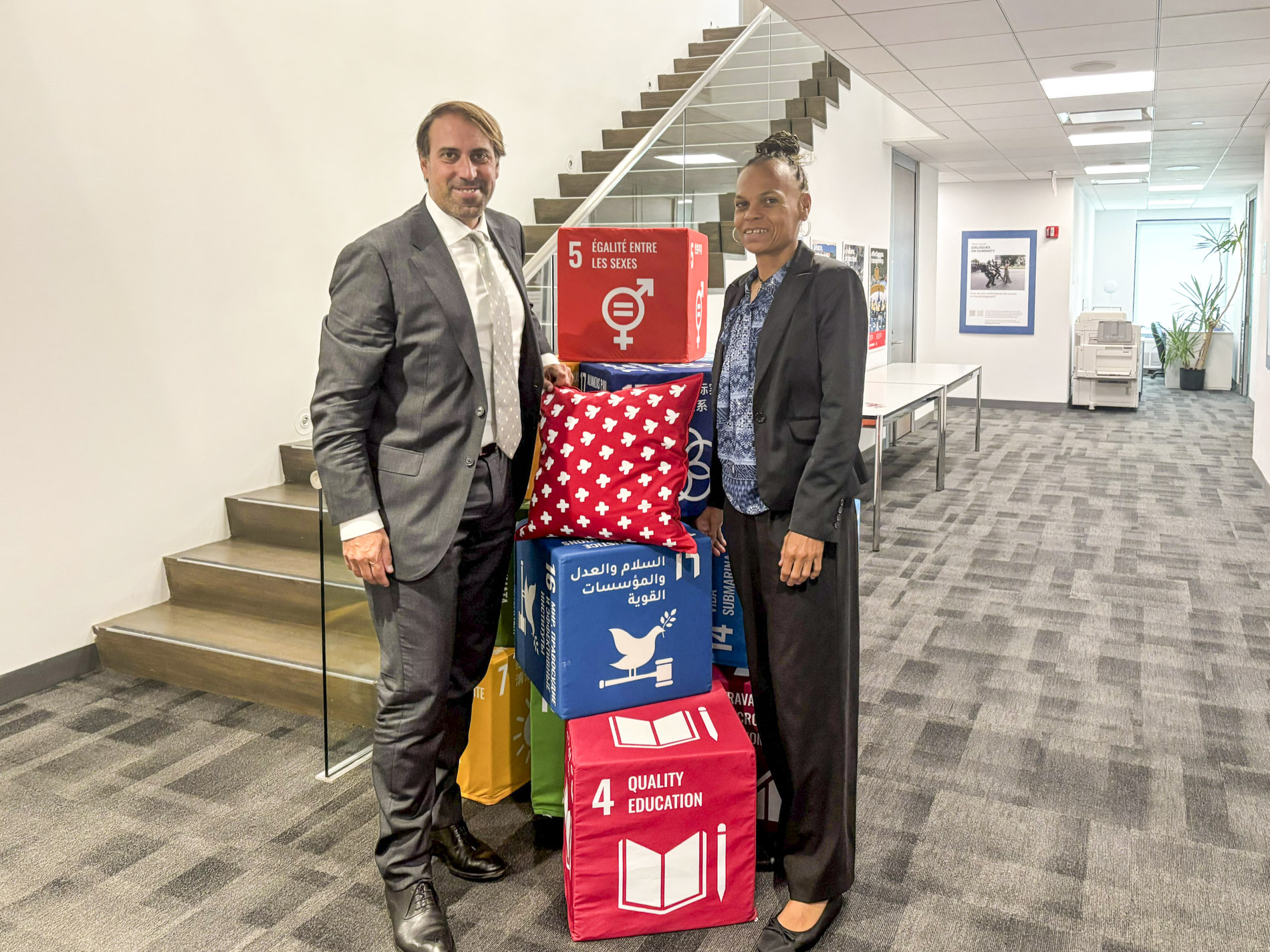The Director of the Italian Agency for Development Cooperation (AICS), Marco Riccardo Rusconi, was part of the Italian delegation that went to New York on the occasion of the 80th session of the United Nations General Assembly. In coordination with the Ministry of Foreign Affairs, Rusconi took part in a series of high-level initiatives on sustainable development and international cooperation.
During the mission, the AICS Director also held meetings with counterparts from several European agencies to review joint initiatives and explore new opportunities for collaboration. In particular, he met with Antón Leis, Director of the Spanish AECID; Patricia Danzi, Director General of the Swiss SDC; and Simon O’Connell, Chief Executive Officer of the Dutch SNV. With Dima Al-Khatib, Director of the United Nations Office for South-South Cooperation (UNOSCC), potential areas of collaboration were explored in the fields of South-South and triangular cooperation.
Also on the sidelines of the Assembly, the Director took part in the event “Baku Hub Partnership: Innovative Climate-Peace Solutions for Conflict-Affected and Vulnerable Contexts,” organized by Azerbaijan as a follow-up to COP29. On this occasion, the strategic value of the climate-peace nexus was highlighted, with particular reference to Chad as a pilot country for climate adaptation projects supported by the “Baku Hub” and the “Green Climate Fund,” in a perspective of stability and resilience.
On behalf of the Italian Ministry of Foreign Affairs, Rusconi also participated in the “First Biennial Summit for a Sustainable, Inclusive, and Resilient Global Economy.” In his speech, delivered on behalf of Italy, he highlighted the main global challenges — from poverty to climate change, from food insecurity to inequality — and reaffirmed the urgent need to expand fiscal space to enable the achievement of the Sustainable Development Goals and to strengthen countries’ capacity to mobilize domestic resources.
At the end of the mission, the Director took part in the online event organized by ASviS, “Ten Years of the 2030 Agenda: Progress, Obstacles, and Future Prospects,” where he emphasized that “global challenges require cooperation, shared responsibility, and multilateral commitment.”
